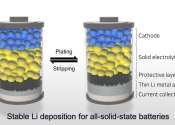Rational design guidelines for neuromorphic devices
Maps are essential for exploring trackless wilderness or vast expanses of ocean. The same is true for scientific studies that try to open up new fields and develop brand-new devices. A journey without maps and signposts tends ...
Jan 14, 2022
0
25









